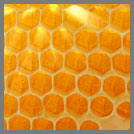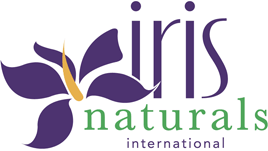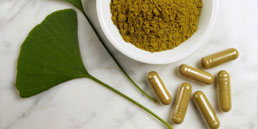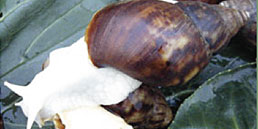 Specialty Products
Specialty Products Bee Propolis & Green Propolis
Bee Propolis & Green Propolis
Bee Propolis & Green Propolis
 Apitherapy is the use of bee products as medicinal. Propolis is a natural resin collected by bees from the plants. Brazilian Propolis is very healthy due to Brazilian plant diversity.
Apitherapy is the use of bee products as medicinal. Propolis is a natural resin collected by bees from the plants. Brazilian Propolis is very healthy due to Brazilian plant diversity.
Human Consumption
According to Marcucci (2006), the propolis from tropical regions, especially Brazil, have been the target of great economic interest in the past years, being Japan the largest buyer of this Brazilian product worldwide. This important economic factor led many researchers, mainly Japanese, to investigate the Brazilian propolis. Nowadays there is a considerable amount of scientific articles on this Brazilian product in the international literature.
Furthermore, the author concludes that the Brazilian propolis has a main marker, i.e. a major component that is present in most analyzed samples, namely 3.5-diprenyl-4-hydroxycinnamic acid (DHCA). This compound has already been commercialized by the Japanese in powder form under the name Artepillin C, and has been used in tumor treatment. The author concludes that this compound is the marker of the Brazilian propolis types BRP and BRPG.
Scientific Name: Propolis
Used Part: Bee or Propolis
Green Propolis
According to Midorikawa et al. (2001), propolis releases a pleasant aromatic odor and presents yellow-green to dark brown color. The author says that Bacharis dracunculifolia is an important source of propolis in São Paulo. This plant is also known as “alecrim do campo” (field rosemary) or “vassoura” (broom – also popularly known as “vassourinha” – small broom).
Green propolis traditionally originates from “alecrim do campo” (field rosemary), the so-called “field rosemary propolis”. According to Queiroga et al. (1990), the southern part of Brazil is the natural habitat of this plant. Propolis producers in Minas Gerais say that propolis from this region would be green due to the greater concentration of “field rosemary” in the state.
Brown Propolis from Paraná
The propolis originating from the states of São Paulo and Paraná is generally dark brown. According to Midorikawa et al. (2001), Bacharis dracunculifolia is also an important source of propolis in these states.
The author attributes to the brown propolis from Paraná the same therapeutic actions attributed to the raw material from the southeast region: anti-bacterial, analgesic, anti-allergic, healing and anti-oxidant.
Cosmetics
The origin of the word “cosmetic” lies in the ancient Greek word Kosmein, which means decoration. The desire of people to decorate themselves is probably as old as humanity itself.
Summary of the cosmetic functions of five primary bee products (modified from Proserpio, 1981 and 1988):
- Honey – Sweetener, emollient, moisturizer, damper, tonic, refresher, anti-irritant, skin softener, epithelial reconstitution and soothing agent.
- Wax – Excipient, protective, film formant, water repellent, serum restorative, depilatory, anti-irritant and emollient.
- Propolis – Anti-dandruff and anti-wrinkle agent, hair conditioner, deodorant, purifier, tonic disinfectant, antioxidant, preservative and UV screen.
- Pollen and royal jelly – Anti-wrinkle, anti-stretch marks, elasticity, nutritional, stable, revitalizing , hair conditioner, tonic and sebum equalizer, tanning aid (pollen only).
The table below shows the effects of propolis extract for these applications:
After-sun lotion
- Anesthetic and tissue regeneration effects
- Anti-inflammatory effects
- Anti-oxidant effects
After-shave lotion
- Anesthetic and tissue regeneration effects
- Anti-microbial activity
- Anti-inflammatory effects
- Anti-oxidant effects
Anti-dandruff shampoo
- Anesthetic and tissue regeneration effects
- Anti-microbial activity
- Anti-inflammatory effects
- Anti-oxidant effects
Application of Propolis
Propolis is normally used in one of its extracted forms. The choice of solvent depends on the final application. Concentrated alcohol extracts (EPP) are used for inclusion in the oil phase of products, and dilute alcohol or propylene glycol extracts (GEP) for inclusion in the water phase, or in foaming preparations. Glycerol extracts are also used, as well as extracts prepared with other solvents. Sometimes the solvent should be eliminated or reduced in order to avoid changes in the consistency of the formulation, as for example in the case of the alcohol extracts used in certain gels.
Some of the functions, and associated applications for propolis in cosmetics, are listed below:
- Anti-bacterial agent – Deodorants and Antiperspirants
- Anti-dandruff and sebum equalizing agent – Shampoos and hair lotions
- Anti-microbial and healing agent – Anti-acnes and after-shave products
- Anti-irritant and antibacterial agent – Mouth rinses and toothpastes
- Purifying agent – Cleansing creams and lotions
- Preservative – In all of the above
- Possibly as catching free radicals – Anti-aging cream
Source: “Value-added products from beekeeping” from FAO (1996)
Formulations
Propolis extracts can be formulated at 1-5% concentration in ointments, in o/w emulsions and most others, alcoholic solutions (mouth rinses) shampoos and foam baths. Higher concentration can be used in toothpastes and soaps, but it should be noted that in alkaline environments, propolis will change the color to dark grey.
Quantity suggested for recipes:
- Lotions – 1-5%
- Ointments – 3,5-10%
- Creams – 1-30%
- Shampoos – 2,5-5%
- Soaps – 1-10%
- Liquid soaps – 1-10%
- Tooth Pastes – 1-10%
- Mouthwash – 1-10%
- Deodorants – 1-5%
- Face Masks – 1-20%
Source: Adapted from “Value-added products from beekeeping” from FAO (1996)
Documents available to download:
Documents & Samples available upon request
- Technical Specifications
- Marketing Flyer





